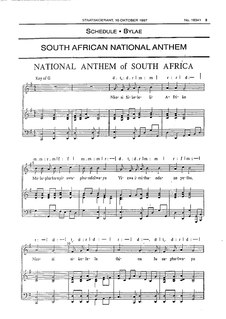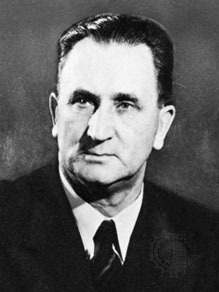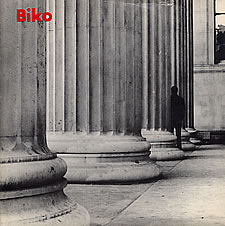See also
- Red Scare
- McCarthyism
- Swart gevaar ("black threat")
Rooi gevaar (English: Red danger) is an Afrikaans phrase, sometimes translated into English as "Communist danger". The term gained popularity in South Africa during the Cold War and was associated with the perceived threat of international communism to religious, economic, and political freedom on the Southern African subcontinent. [1] This pretext was used to justify the banning of the South African Communist Party (SACP) and its sister organisation, the African National Congress (ANC), which were regarded as leading anti-apartheid movements. [1] Alternatively, the phrase rooi komplot (English: Red plot) was also used. [2]
The term diminished in use after the collapse of the Soviet Union in 1991. [1]

The African National Congress (ANC) is a social-democratic political party in South Africa. It has been in power since the election of lawyer, activist and former political prisoner Nelson Mandela at the first free and fair elections in 1994, and has been re-elected at every election since, though with a reduced majority every time since 2004. Cyril Ramaphosa, the incumbent President of South Africa, has served as President of the ANC since 18 December 2017.

The National Anthem of South Africa was adopted in 1997 and is a hybrid song combining new English lyrics with extracts of the 19th century hymn "Nkosi Sikelel' iAfrika" and the Afrikaans song "Die Stem van Suid-Afrika", which was used as the South African national anthem during the apartheid era. The committee responsible for this new composition included Anna Bender, Elize Botha, Richard Cock, Dolf Havemann (Secretary), Mzilikazi Khumalo (Chairman), Masizi Kunene, John Lenake, Fatima Meer, Khabi Mngoma, Wally Serote, Johan de Villiers, and Jeanne Zaidel-Rudolph.

The South African Communist Party (SACP) is a communist party in South Africa. It was founded in 1921 as the Communist Party of South Africa (CPSA), dissolved in 1948, was declared illegal in 1950 by the governing National Party, was refounded as the SACP in 1953, and participated in the struggle to end the apartheid system. It is a member of the Tripartite Alliance alongside the African National Congress and the Congress of South African Trade Unions (COSATU) and through this it influences the South African government. The party's Central Committee is the party's highest decision-making structure.
A Red Scare is the promotion of a widespread fear of a potential rise of communism, anarchism or other leftist ideologies by a society or state. It is often characterized as political propaganda. The term is most often used to refer to two periods in the history of the United States which are referred to by this name. The First Red Scare, which occurred immediately after World War I, revolved around a perceived threat from the American labor movement, anarchist revolution, and political radicalism. The Second Red Scare, which occurred immediately after World War II, was preoccupied with the perception that national or foreign communists were infiltrating or subverting U.S. society and the federal government. The name refers to the red flag as a common symbol of communism.

Govan Archibald Mvuyelwa Mbeki was a South African politician, Communist and son of Chief Sikelewu Mbeki and Johanna Mahala and also the father of the former South African president Thabo Mbeki and political economist Moeletsi Mbeki. He was a leader of the South African Communist Party and the African National Congress. After the Rivonia Trial, he was imprisoned (1963–1987) on charges of terrorism and treason, together with Nelson Mandela, Walter Sisulu, Raymond Mhlaba, Ahmed Kathrada and other eminent ANC leaders, for their role in the ANC's armed wing, Umkhonto we Sizwe (MK). He was sometimes mentioned by his nickname "Oom Gov".
Raymond Mphakamisi Mhlaba was an anti-apartheid activist, Communist and leader of the African National Congress (ANC) also as well the first premier of the Eastern Cape. Mhlaba spent 25 years of his life in prison. Well known for being sentenced, along with Nelson Mandela, Govan Mbeki, Walter Sisulu and others in the Rivonia Trial, he was an active member of the ANC and the South African Communist Party (SACP) all his adult life. His kindly manner brought him the nickname "Oom Ray".

The Defiance Campaign against Unjust Laws was presented by the African National Congress (ANC) at a conference held in Bloemfontein, South Africa in December 1951. The Campaign had roots in events leading up the conference. The demonstrations, taking place in 1952 were the first "large-scale, multi-racial political mobilization against apartheid laws under a common leadership."

The Suppression of Communism Act, 1950, renamed the Internal Security Act in 1976, was legislation of the national government in apartheid South Africa which formally banned the Communist Party of South Africa and proscribed any party or group subscribing to communism, according to a uniquely broad definition of the term. It was also used as the basis to place individuals under banning orders, and its practical effect was to isolate and silence voices of dissent.
In political jargon, a useful idiot is a derogatory term for a person perceived as propagandizing for a cause without fully comprehending the cause's goals, and who is cynically used by the cause's leaders. The term was originally used during the Cold War to describe non-communists regarded as susceptible to communist propaganda and manipulation. The term has often been attributed to Vladimir Lenin, but this attribution is unsubstantiated.

Overstrand Municipality is a local municipality in the Western Cape province of South Africa. It is located along the Atlantic coast between Cape Town and Cape Agulhas, within the Overberg District Municipality. The principal towns in the municipality are Hermanus, Gansbaai and Kleinmond. As of 2011 it had a population of 80,432.
Swart gevaar was a term used during apartheid in South Africa to refer to the perceived security threat of the majority black African population to the white South African government.

Baasskap, literally "boss-ship" or "boss-hood", is an Afrikaans term that was used during apartheid to describe the social, political and economic domination of South Africa by its minority white population. The term is intimately connected to the English-language term "white supremacy" and functioned either as a description or an endorsement of white minority rule in South Africa.

Apartheid was a system of institutionalised racial segregation that existed in South Africa and South West Africa from 1948 until the early 1990s. Apartheid was characterized by an authoritarian political culture based on baasskap, which ensured that South Africa was dominated politically, socially, and economically by the nation's minority white population. According to this system of social stratification, white citizens had the highest status, followed by Asians and Coloureds, then black Africans. The economic legacy and social effects of apartheid continue to the present day.

"Biko" is an anti-apartheid protest song by English rock musician Peter Gabriel. It was released by Charisma Records as a single from Gabriel's eponymous third album in 1980.

General elections were held in South Africa on 26 May 1948. They represented a turning point in the country's history, as despite receiving just under half of the votes cast, the United Party and its leader, incumbent Prime Minister Jan Smuts, were ousted by the Herenigde Nasionale Party (HNP) led by D. F. Malan, a Dutch Reformed cleric.
One Settler, One Bullet was a rallying cry and slogan originated by the Azanian People's Liberation Army (APLA), the armed wing of the Pan Africanist Congress (PAC), during the struggle of the 1980s against apartheid in South Africa. The slogan parodied the African National Congress's slogan 'One Man, One Vote', which eventually became 'One Person, One Vote'. It is not to be confused with the controversial protest song "Dubul' ibhunu".
Israel and the apartheid analogy is a criticism of the Israeli government charging that Israel has practiced apartheid against Palestinians, primarily in its occupation of the West Bank; the term apartheid in this context may refer to the crime of apartheid in international law, or it may refer to an analogy in comparison with apartheid in South Africa. Some commentators extend the term to include treatment of Arab citizens of Israel, describing their status as second-class citizens. Proponents of the analogy claim several core elements of what they call "a system of control" in the occupied Palestinian territories meet the definition of apartheid in international law or are similar to what prevailed under the South African apartheid regime. These features regard such things as the ID system, the pattern of Israeli settlements, separate roads for Israeli and Palestinian inhabitants, Israeli military checkpoints, marriage law, the West Bank barrier, the use of Palestinians for cheaper labour, the Palestinian West Bank exclaves, inequities in infrastructure, legal rights, and disparities of access to land and resources between Palestinians and Israeli settlers. It is argued that, like South Africa, Israel may be classified as a settler colonial society, in violation of international law.
"Each one teach one" is an African-American proverb. It has been adopted as a motto by many organizations.
Boerehaat is an Afrikaans word that means "ethnic hatred of Boers" or Afrikaners as they became known after the Second Boer War. The related term Boerehater has been used to describe a person who hates, prejudices or criticises Boers or Afrikaners.

Makoti Sibongile Khawula is a South African politician and previous anti-apartheid activist from KwaZulu-Natal serving as a Member of the National Assembly of South Africa for the Economic Freedom Fighters (EFF) party since 2014. Khawula is known for her insistence on speaking Zulu in Parliament.